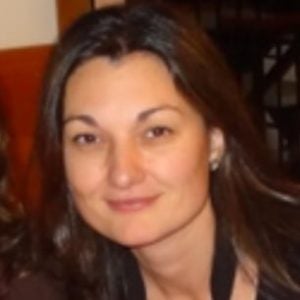As an academic with a focus on the economics of energy – how we can better understand, measure, and make informed choices about how we power our lives – Simona Trandafir considers Rhode Island’s experience with the country’s first wind farm as both significant and exciting. “Through my work with my students, I emphasize the unique opportunity we have here, through the Block Island Wind Farm, to contribute to learning and how we think about energy issues in terms of the economics.”
Trandafir, an Assistant Professor within the Environmental and Natural Resource Economics (ENRE) program at the University of Rhode Island and the Director of the Undergraduate Certificate in Energy Economics, studies the economics of energy use with a mind both towards furthering the science to support a rapidly growing global need for the information, as well as to assist students – the next generation of resources experts – with planning their futures. “We are working within a very important time for these issues, so when I’m working with my students, I want to impress upon them the many ways in which they can engage in this field, and have an impact.”
As an ENRE professor, Trandafir undertakes research that focuses on sustainable energy management both on the supply and demand side. For example, she is exploring the impact that the local wind farm is having on the recreational choices of Block Island visitors. Also, she completed a project for the Rhode Island Office of Energy Resources, conducting an analysis of the municipal energy trends in Rhode Island and providing technical assistance to municipalities borrowing funds for energy efficiency improvements.
At the heart of the work, Trandafir says, is the striving for balance and the need to do so via science and stakeholder participation. “When we talk about energy resources, be they offshore renewable energy resources, or other kinds, the conversations we, as a society must have, are ultimately about tradeoffs.” She explains further that energy consumption of any kind causes impacts, both economic and environmental, so all choices must be first understood, then weighed collectively, so communities can arrive at the best outcomes overall.
That type of weighing and thinking about the tradeoffs of investing in a panoply of energy resources – from offshore renewables, to solar, to traditional fossil fuels – is what Trandafir works to inspire in her students, several of whom participate in energy resources-centered learning opportunities, like the URI Energy Fellows Program and the Undergraduate Certificate in Energy Policy. “This is why it’s so valuable to have the wind farm right here, because it’s a real-life example that the students can think about and work with regularly. It’s right here, and that’s something that many students elsewhere don’t have immediately available to them.”
It’s fitting, then, that her advice to students falls along this main theme of tradeoffs, and of understanding the importance of ensuring that community input and stakeholder experience is considered in society’s choices for energy resources. “That’s in great part what I am thinking about, when I’m working with the students and developing the classes – I want their studies of economic and energy resources to encourage them to consider how tradeoffs are at the center of the discussion, when we talk about how communities make their choices for energy resources.”

